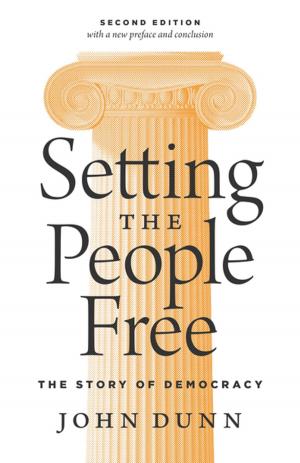The Development Dilemma
Security, Prosperity, and a Return to History
Nonfiction, Social & Cultural Studies, Political Science, Government, Public Policy, Politics, History & Theory| Author: | Robert H. Bates | ISBN: | 9781400888702 |
| Publisher: | Princeton University Press | Publication: | September 26, 2017 |
| Imprint: | Princeton University Press | Language: | English |
| Author: | Robert H. Bates |
| ISBN: | 9781400888702 |
| Publisher: | Princeton University Press |
| Publication: | September 26, 2017 |
| Imprint: | Princeton University Press |
| Language: | English |
Reassessing the developing world through the lens of Europe's past
Today’s developing nations emerged from the rubble of the Second World War. Only a handful of these countries have subsequently attained a level of prosperity and security comparable to that of the advanced industrial world. The implication is clear: those who study the developing world in order to learn how development can be achieved lack the data to do so.
In The Development Dilemma, Robert Bates responds to this challenge by turning to history, focusing on England and France. By the end of the eighteenth century, England stood poised to enter “the great transformation.” France by contrast verged on state failure, and life and property were insecure. Probing the histories of these countries, Bates uncovers a powerful tension between prosperity and security: both may be necessary for development, he argues, but efforts to achieve the one threaten the achievement of the other. A fundamental tension pervades the political economy of development.
Bates also argues that while the creation of a central hierarchy—a state—may be necessary to the achievement of development, it is not sufficient. What matters is how the power of the state is used. France and England teach us that in some settings the seizure and redistribution of wealth—not its safeguarding and fostering—is a winning political strategy. These countries also suggest the features that mark those settings—features that appear in nations throughout the developing world.
Returning to the present, Bates applies these insights to the world today. Drawing on fieldwork in Zambia and Kenya, and data from around the globe, he demonstrates how the past can help us to understand the performance of nations in today’s developing world.
Reassessing the developing world through the lens of Europe's past
Today’s developing nations emerged from the rubble of the Second World War. Only a handful of these countries have subsequently attained a level of prosperity and security comparable to that of the advanced industrial world. The implication is clear: those who study the developing world in order to learn how development can be achieved lack the data to do so.
In The Development Dilemma, Robert Bates responds to this challenge by turning to history, focusing on England and France. By the end of the eighteenth century, England stood poised to enter “the great transformation.” France by contrast verged on state failure, and life and property were insecure. Probing the histories of these countries, Bates uncovers a powerful tension between prosperity and security: both may be necessary for development, he argues, but efforts to achieve the one threaten the achievement of the other. A fundamental tension pervades the political economy of development.
Bates also argues that while the creation of a central hierarchy—a state—may be necessary to the achievement of development, it is not sufficient. What matters is how the power of the state is used. France and England teach us that in some settings the seizure and redistribution of wealth—not its safeguarding and fostering—is a winning political strategy. These countries also suggest the features that mark those settings—features that appear in nations throughout the developing world.
Returning to the present, Bates applies these insights to the world today. Drawing on fieldwork in Zambia and Kenya, and data from around the globe, he demonstrates how the past can help us to understand the performance of nations in today’s developing world.















